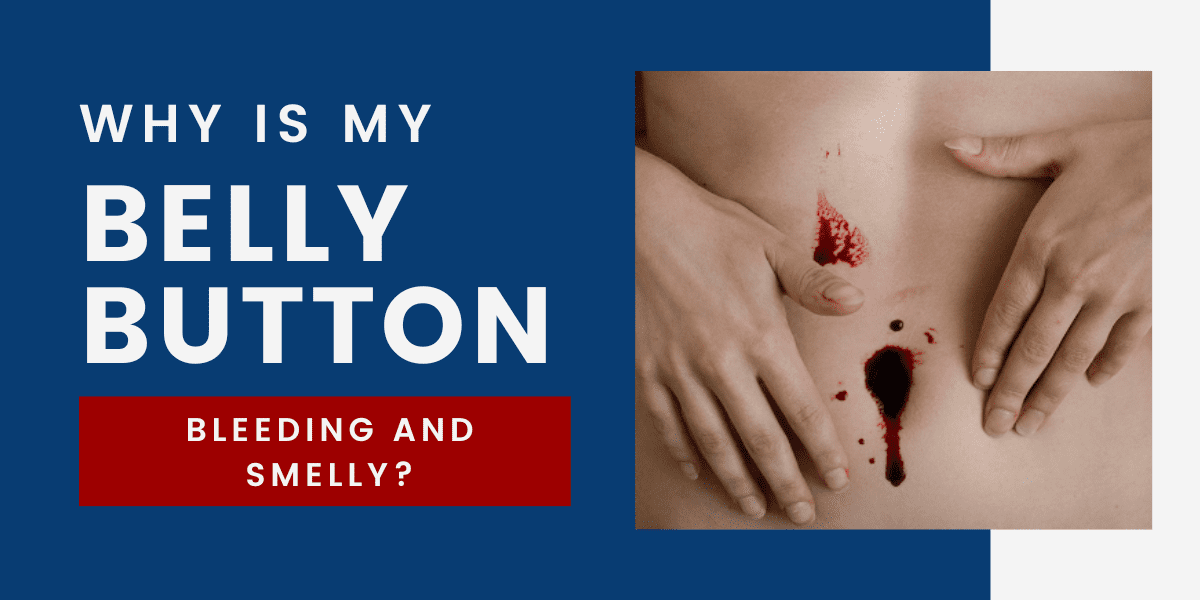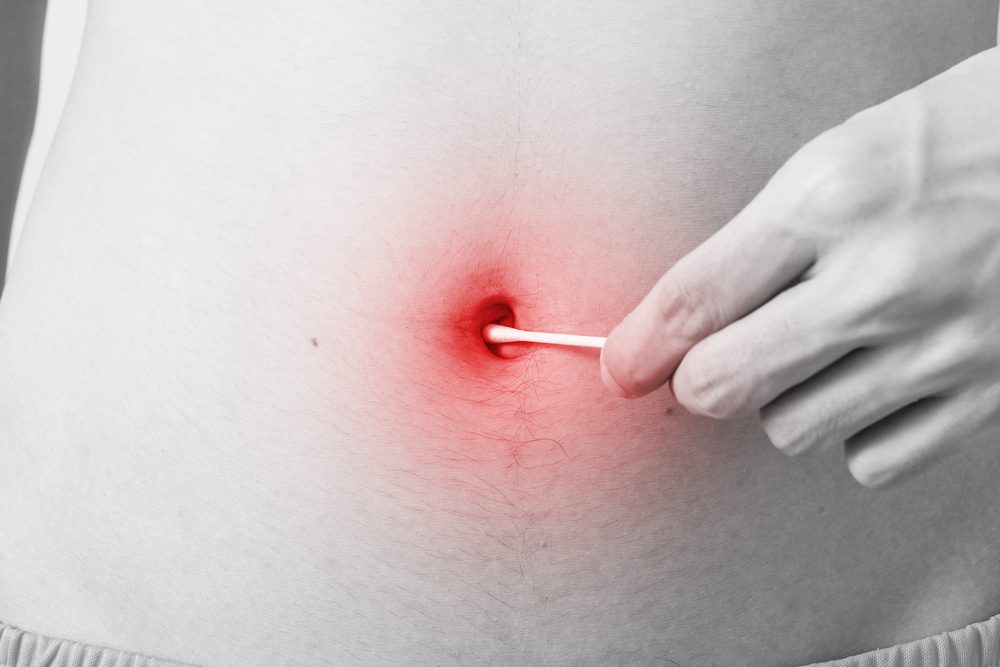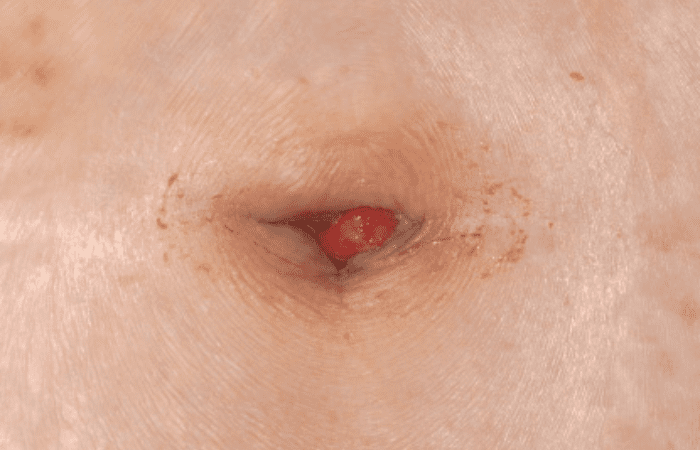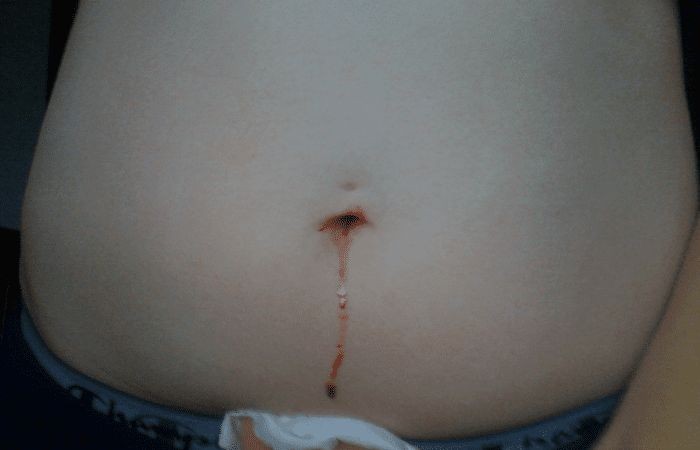
Introduction
If you have ever noticed your belly button bleeding or producing an unusual smell, you are not alone. In fact, this is a common condition that affects many people, especially those who are overweight or obese. While it may be tempting to ignore the problem, it is important to seek medical attention as soon as possible so that the underlying cause can be diagnosed and treated appropriately.
There are a number of different conditions that can cause your belly button to bleed or produce an unpleasant odor. The most common culprit is excess abdominal fat. When there is too much abdominal fat, it can put pressure on the belly button and cause it to bleed. In some cases, the excess fat can also cause the belly button to become infected, which can lead to an unpleasant smell. Other causes of bleeding or smelling belly buttons include hernias, allergies, and Crohn’s disease.
If you notice that your belly button is bleeding or smells bad, it is important to see a doctor so that the underlying cause can be diagnosed and treated. Treatments for bleeding or smelling belly buttons vary depending on the underlying cause. For example, if excess abdominal fat is the culprit, losing weight may help to resolve the problem. However, if the underlying cause is a hernia or Crohn’s disease, more aggressive treatments may be necessary.
Why is My Belly Button Bleeding?
There are several reasons why your belly button might bleed. One of the most common is dry skin. When the skin around your belly button becomes dry, it can crack and bleed. This is especially true if you have an “outie” belly button.
Another common cause of belly button bleeding is trauma to the area. This can happen if you accidentally scratch or poke your belly button with a sharp object. It can also occur if you wear tight clothing that rubs against your belly button area.
Less commonly, bleeding from the belly button can be a sign of a more serious condition, such as an infection or tumor. If the bleeding persists or is accompanied by other symptoms, such as discharge from the belly button, fever, or abdominal pain, you should see a doctor.

Belly Button Infection Symptoms: What You Need to Know
Your belly button is a sensitive area. It’s constantly getting rubbed up against your clothes, touched by your fingers, and exposed to all sorts of bacteria. So it’s no wonder that belly button infections are fairly common, especially in people who have a lot of body fat. If you think you might have a belly button infection, it’s important to be able to recognize the symptoms so you can get treatment as soon as possible. Here’s what you need to know.
What are the Symptoms of a Belly Button Infection?
The most common symptom of a belly button infection is redness and swelling around the area. You might also see discharge that is yellow or green in color. The discharge might have a bad odor. You might also feel pain or tenderness around the area. If the infection spreads, you might also have a fever or feel generally ill.
How Do You Get a Belly Button Infection?
There are a few different ways that you can get a belly button infection. One way is through contact with contaminated water. This can happen if you go swimming in water that contains bacteria, or if you don’t clean your belly button properly after swimming. Another way is through contact with contaminated objects, such as dirty towels or clothing. You can also get an infection if you have a cut or scrape near your belly button that becomes infected with bacteria.

Bleeding Belly Button Hernia
A bleeding belly button hernia is a type of hernia that affects the navel (belly button). This condition is usually benign (non-cancerous) and not serious. However, it can be uncomfortable and may bleed frequently. In severe cases, surgery may be necessary to correct the problem.

What is a Bleeding Belly Button Hernia?
A hernia occurs when an organ or tissue protrudes through a weak point in the abdominal wall. The most common type of hernia is an inguinal hernia, which affects the groin area. A belly button hernia occurs when fatty tissue or a portion of the intestines pushes through a weakened area near the navel.
Causes of a Bleeding Belly Button Hernia
Most belly button hernias are congenital, meaning they are present at birth. However, they can also be acquired later in life. Factors that may contribute to the development of a belly button hernia include:
• Obesity: excess weight puts strain on the abdominal muscles, causing them to weaken over time. This makes it more likely for organs and tissues to protrude through the weakened area.
• Pregnancy: as the baby grows, it puts pressure on the abdominal wall and weakens the surrounding muscles. This can cause a hernia to develop or worsen during pregnancy.
• Heavy lifting: lifting heavy objects can put strain on your abdominal muscles and cause them to weaken over time.
• Connective tissue disorders: conditions that affect connective tissue (the tissue that holds your organs in place) make it more likely for a hernia to develop. Examples of connective tissue disorders include Marfan syndrome and Ehlers-Danlos syndrome.
•Previous surgery: if you’ve had surgery in your abdomen, you may be more likely to develop a hernia at the surgical site.
Symptoms of a Bleeding Belly Button Hernia
The most common symptom of a belly button hernia is a lump near the navel. This lump may be painful, especially when coughing or straining. Other symptoms include:
• bleeding from the lump
• discharge from the lump
• pain or tenderness near the navel

Conclusion
If you think you might have a belly button infection, it’s important to be aware of the symptoms so you can seek treatment as soon as possible. The most common symptom is redness and swelling around the area, but you may also see discharge, pain, or tenderness. If you have a cut or scrape near your belly button, it’s important to keep it clean to prevent infection.
If you develop a hernia, you may notice a lump near your navel that is painful or bleeds frequently. In severe cases, surgery may be necessary to correct the problem. If you think you might have a belly button infection or hernia, it’s important to see your doctor so they can diagnose and treat the condition.
Frequently Asked Questions (FAQs)
Will a Belly Button Infection Go Away on its Own?
When your navel area is clean and dry, belly button yeast infections frequently go away on their own. Antifungal medications are typically effective in treating belly button yeast infections in healthy individuals.
Can a Smelly Belly Button Be Serious?
A stinking belly button may occasionally be a sign of an ailment requiring medical treatment, like an infection or cyst. In addition to these symptoms, keep an eye out for any discharge that is white, yellow, or green; swelling, redness, or fading in color.
Is Belly Button Infection Serious?
Make an appointment with your doctor right away if you suspect an infection in your belly button so that it can be thoroughly cleaned. If you want to get rid of the bacteria before it spreads to other regions of your body, you might also need to take antibiotics that are prescribed.
Why is My Belly Button Wet and Smelly Red?
You might have a bacterial, fungal, or yeast infection if your belly button is "leaking" clear or colored discharge or blood. Other indications of infection include redness, itching, crusty skin, and unpleasant odors. After washing your belly button, if any crust or discharge remains, you should consult a doctor.




